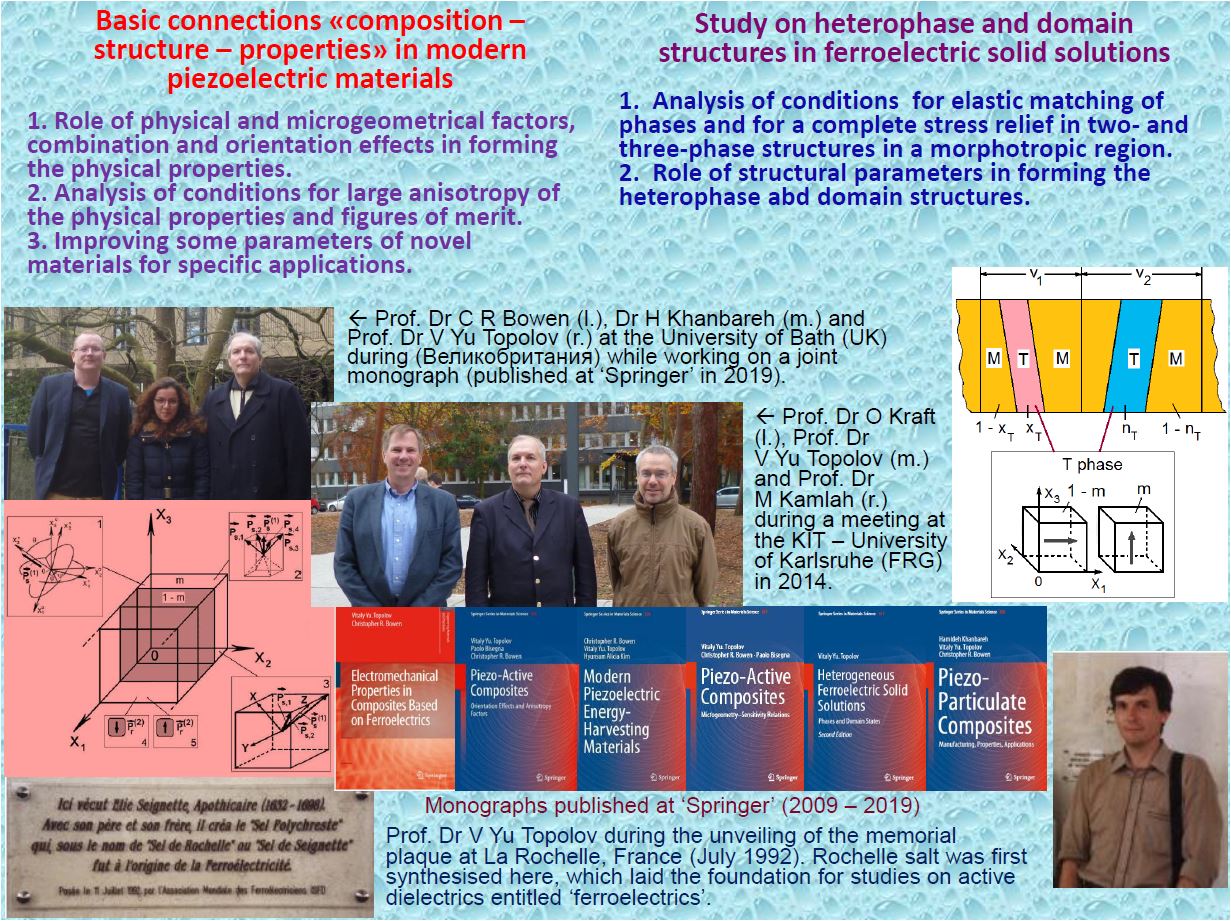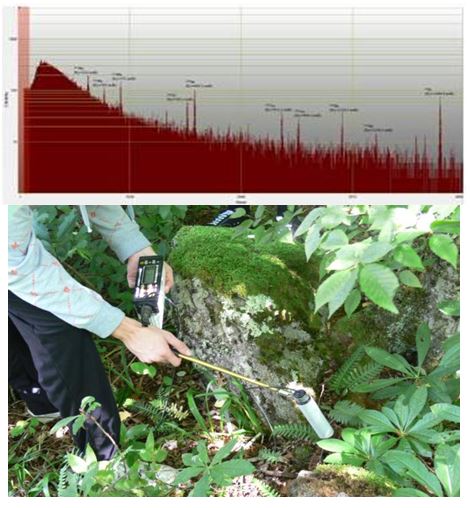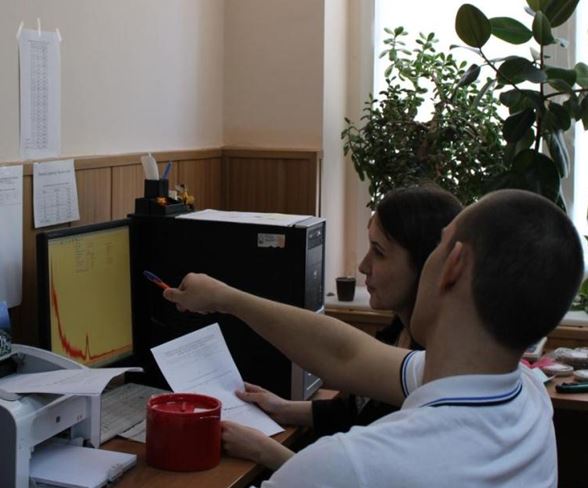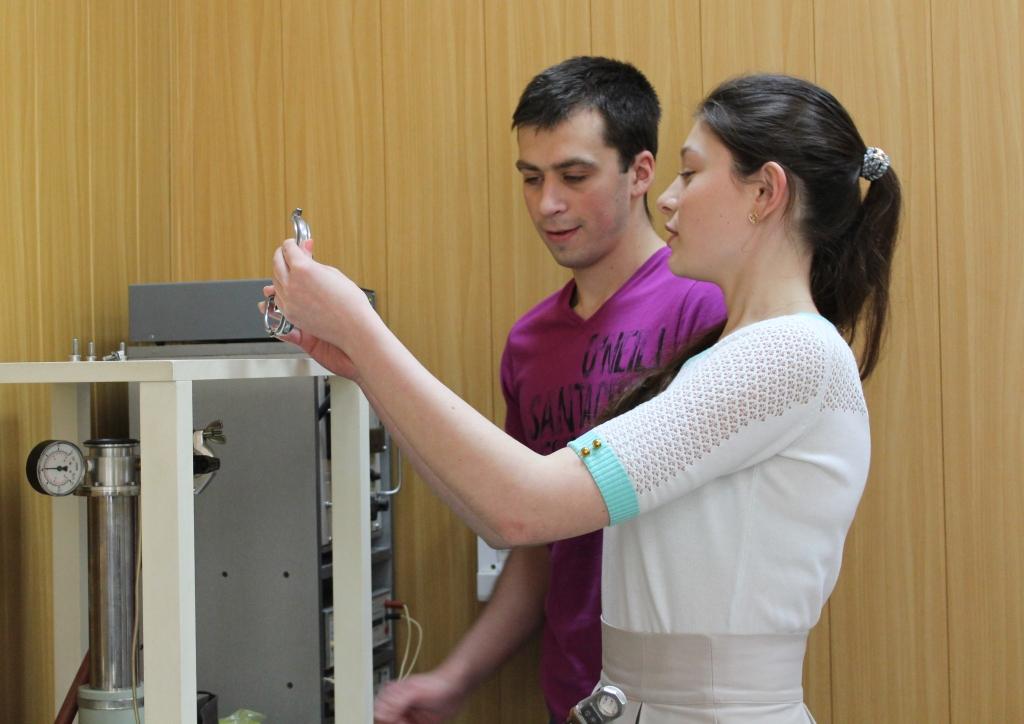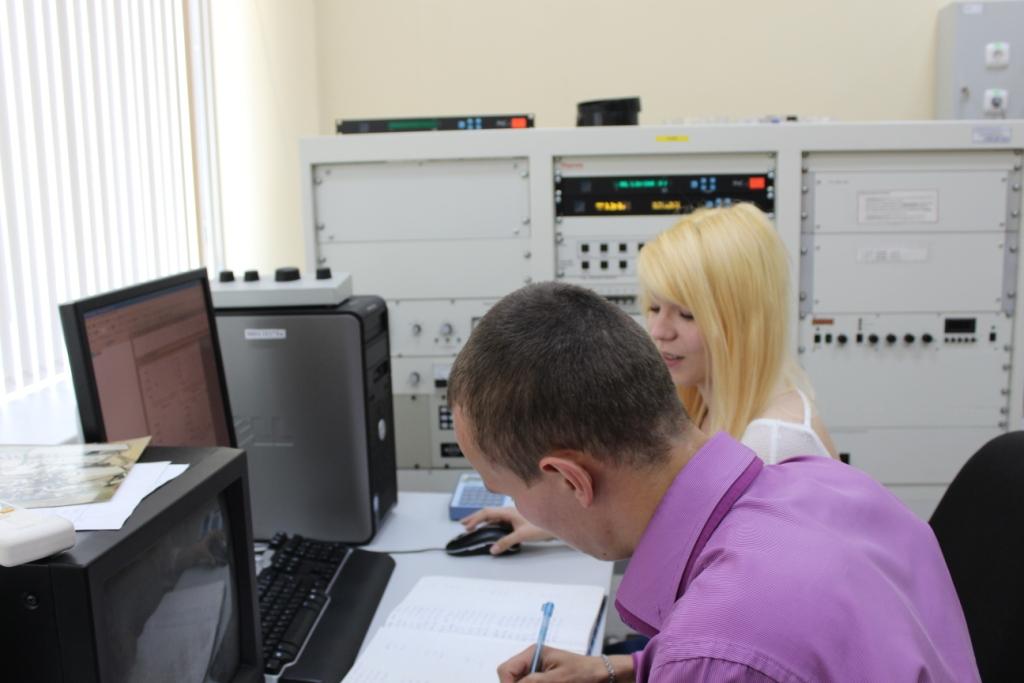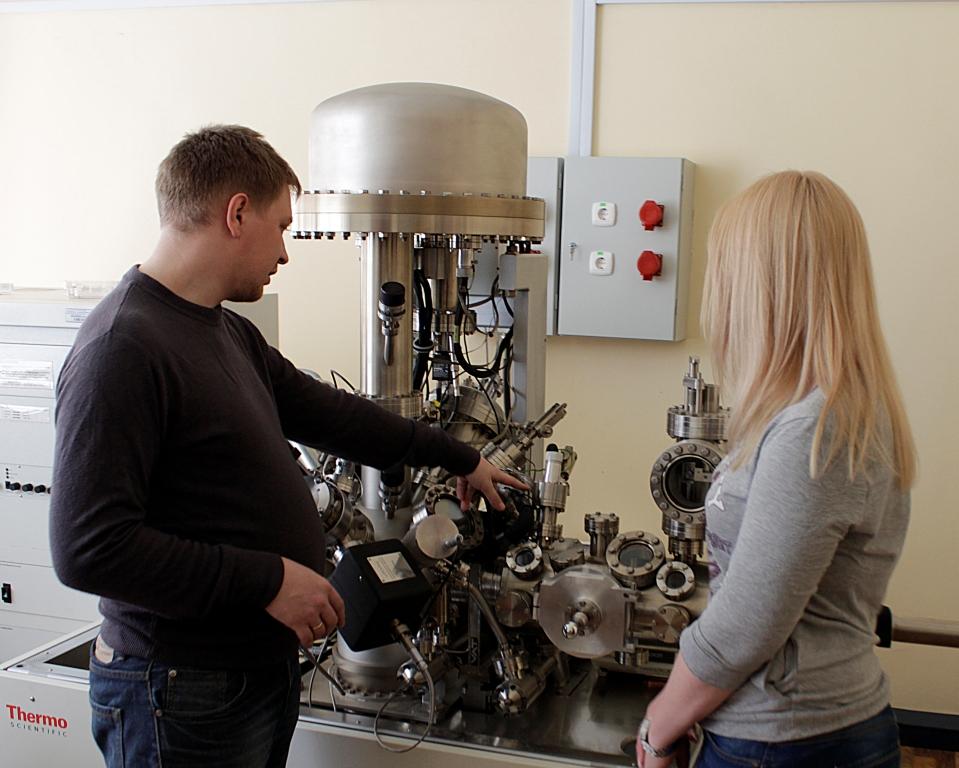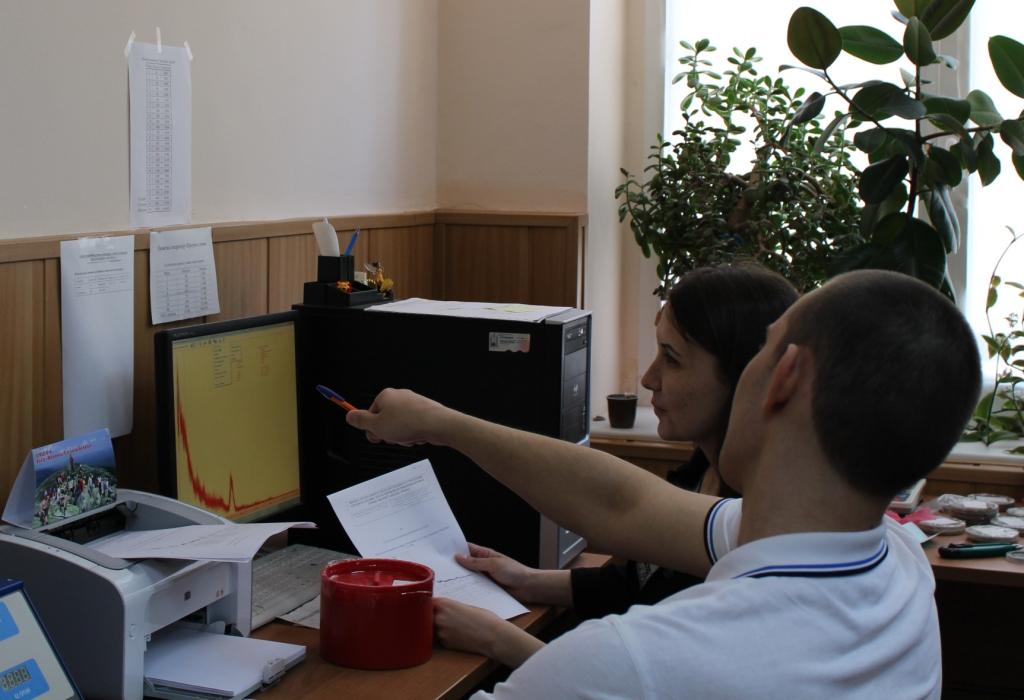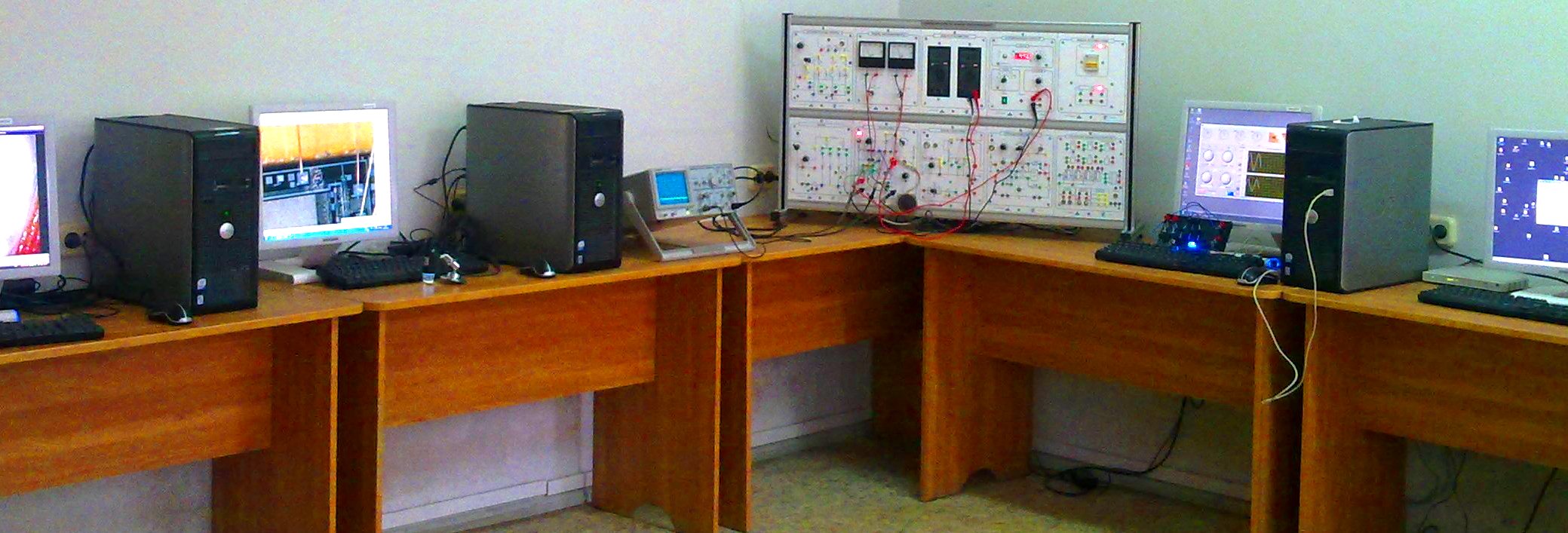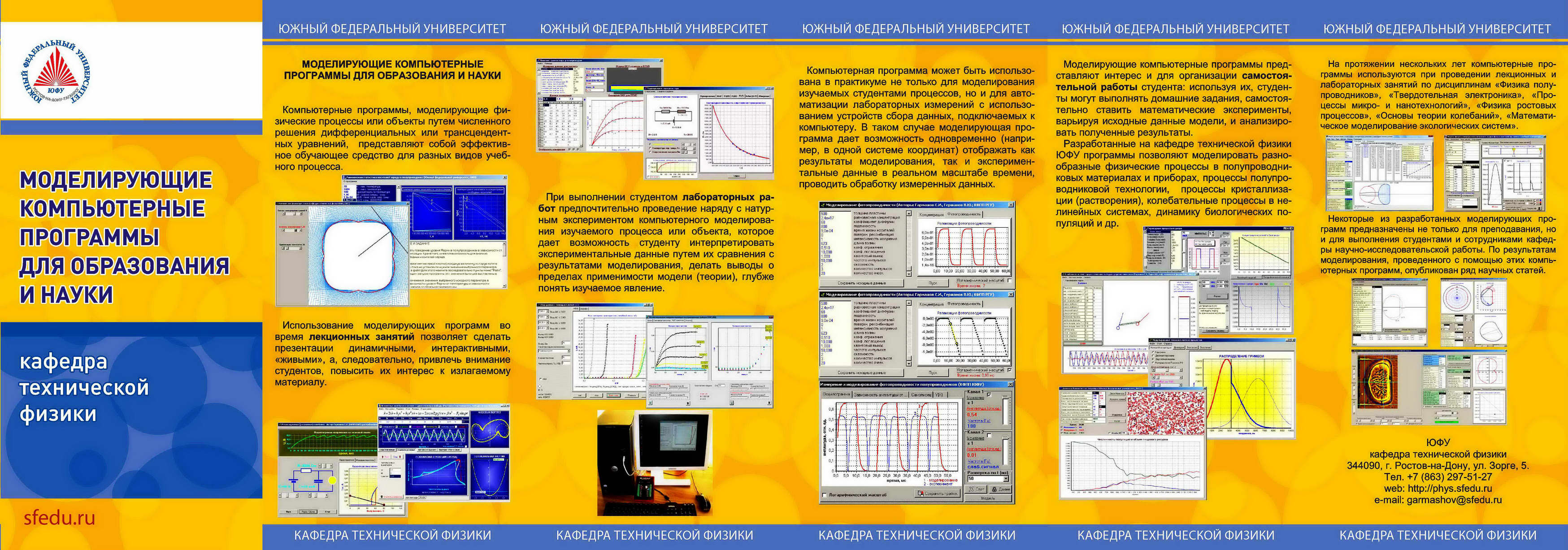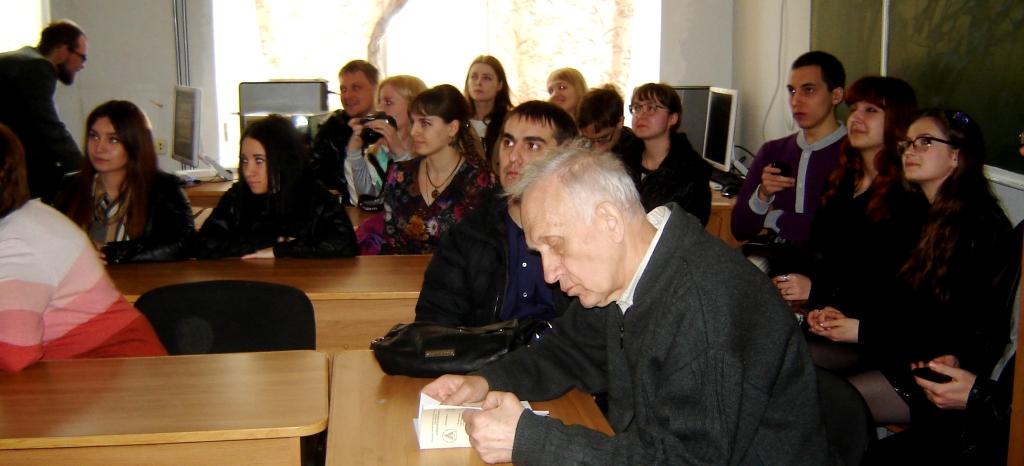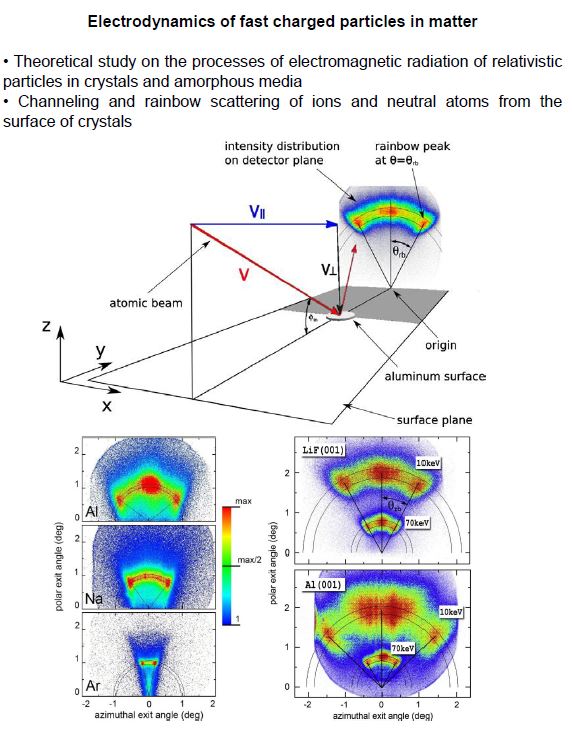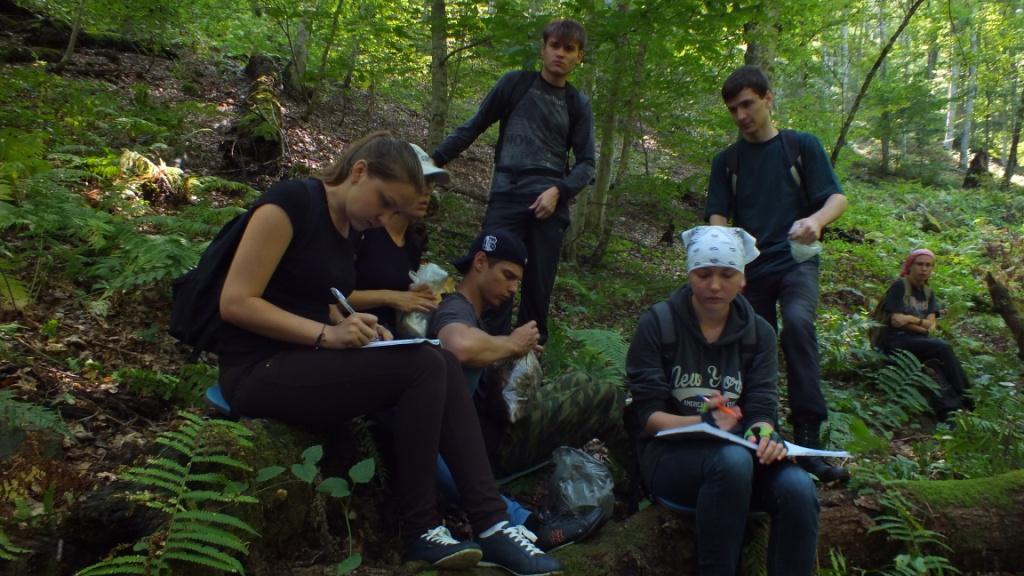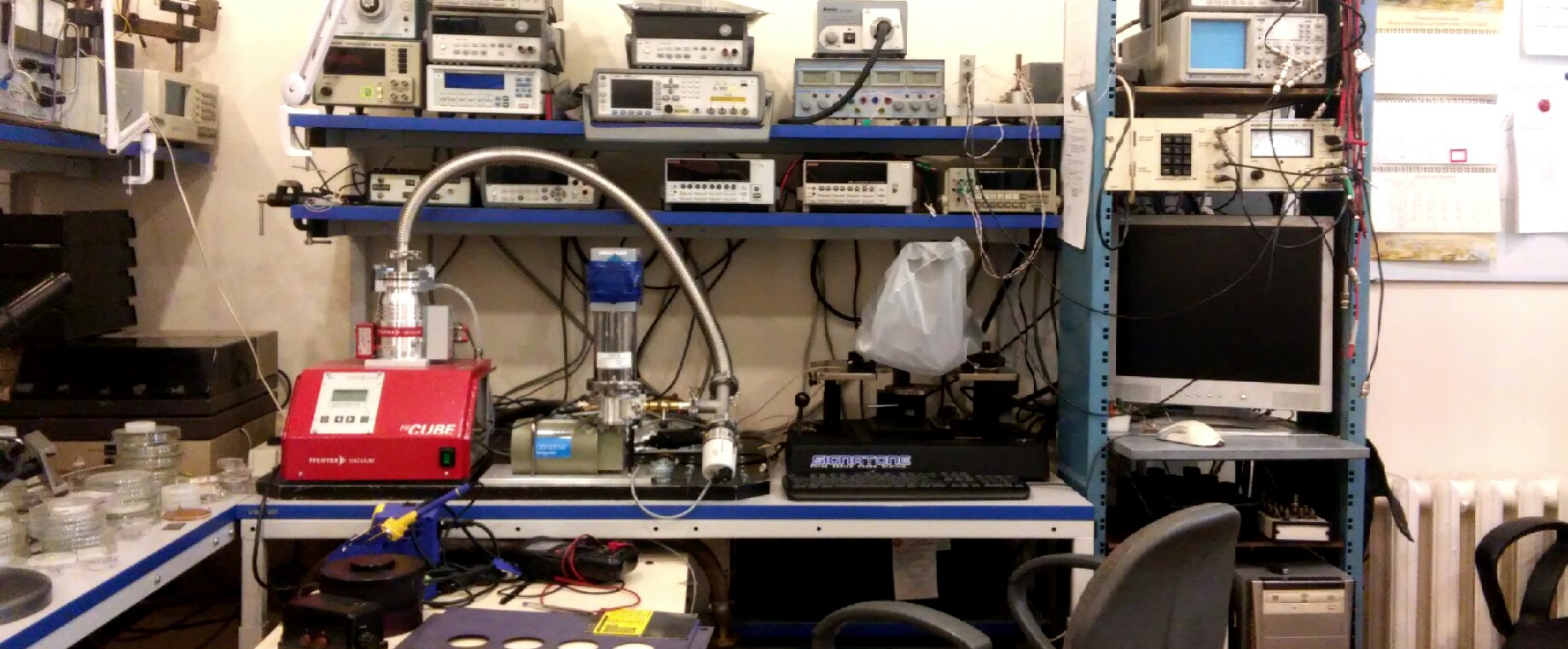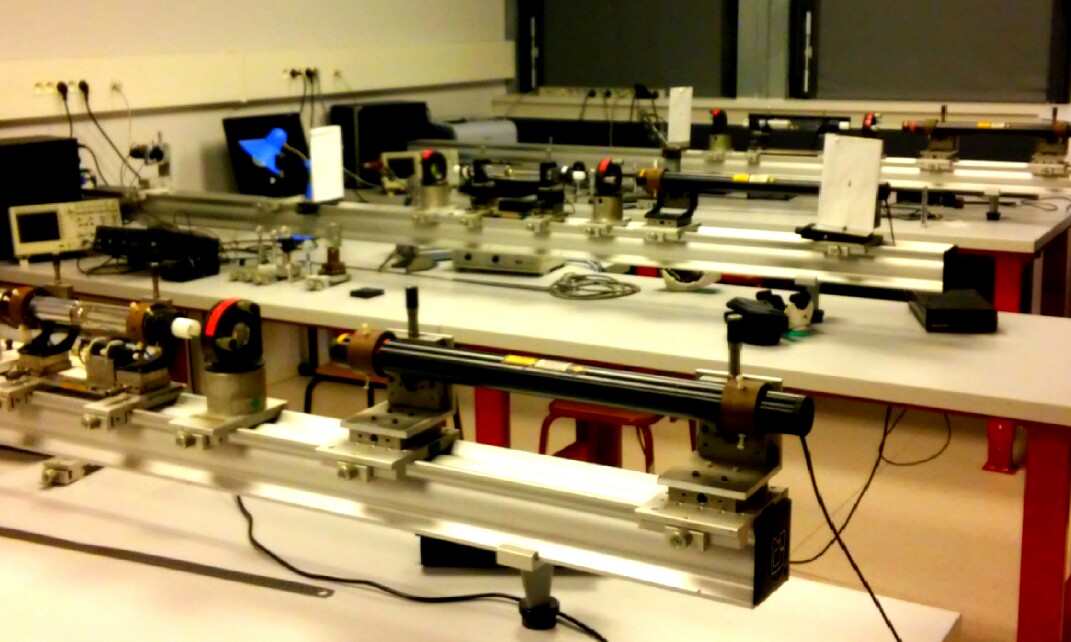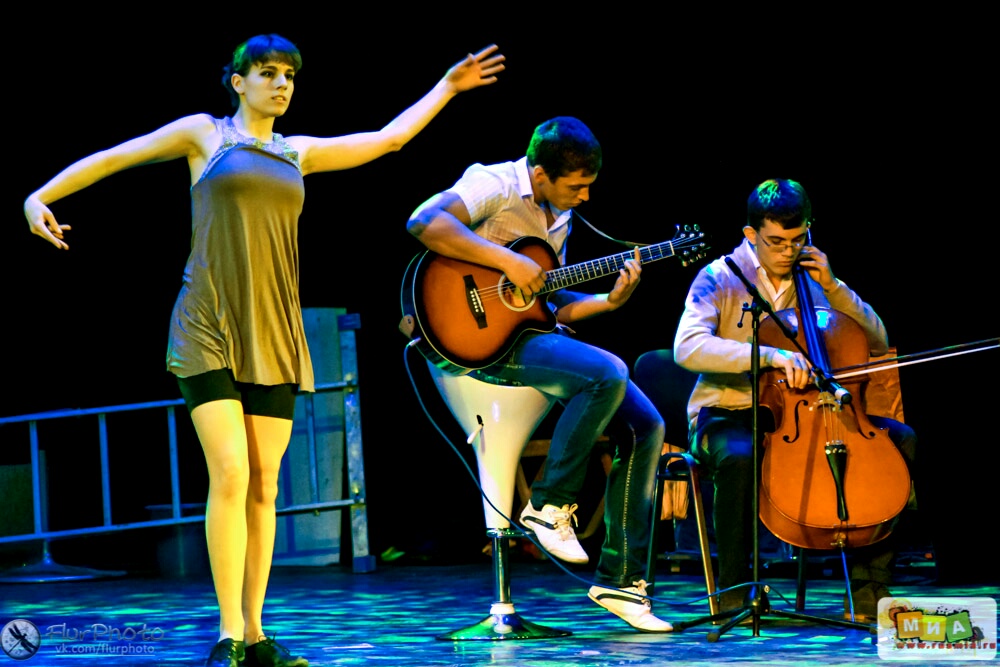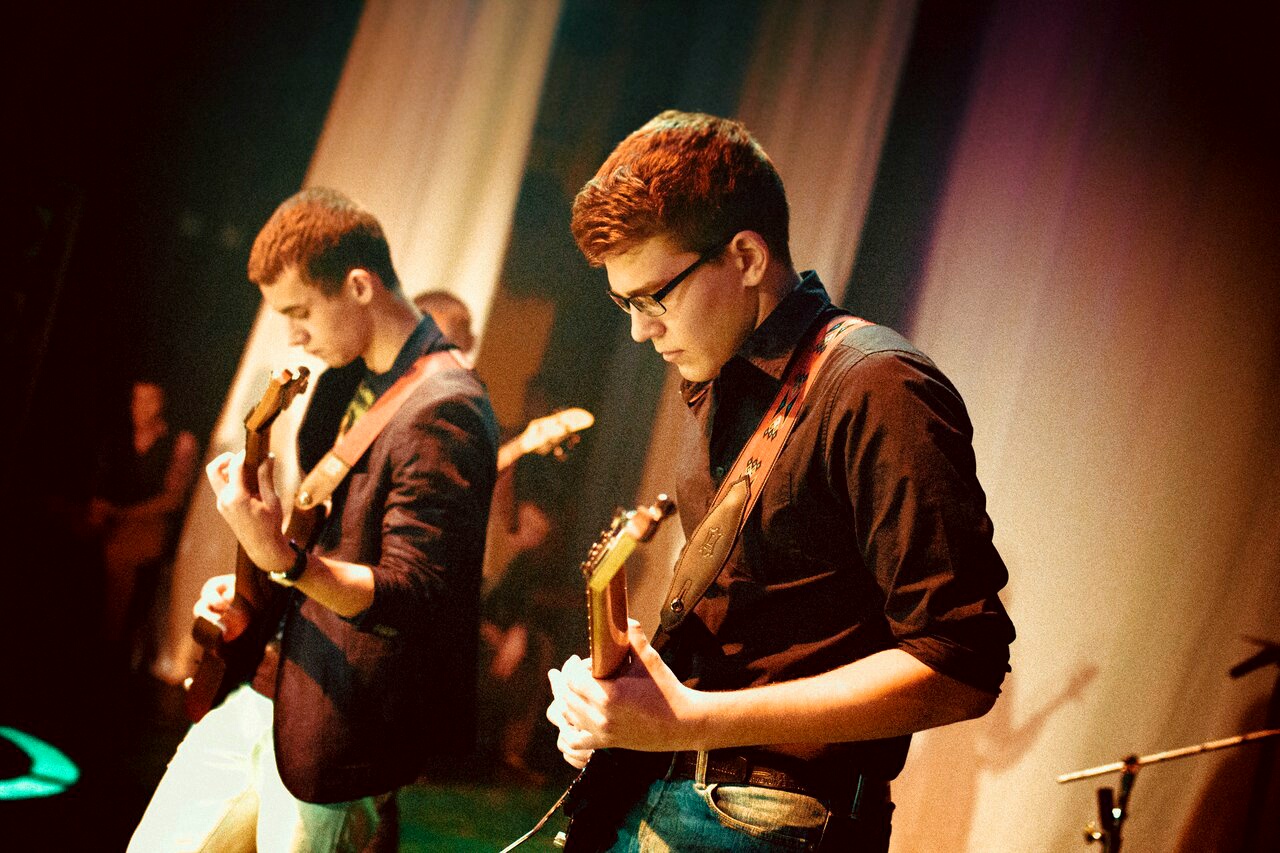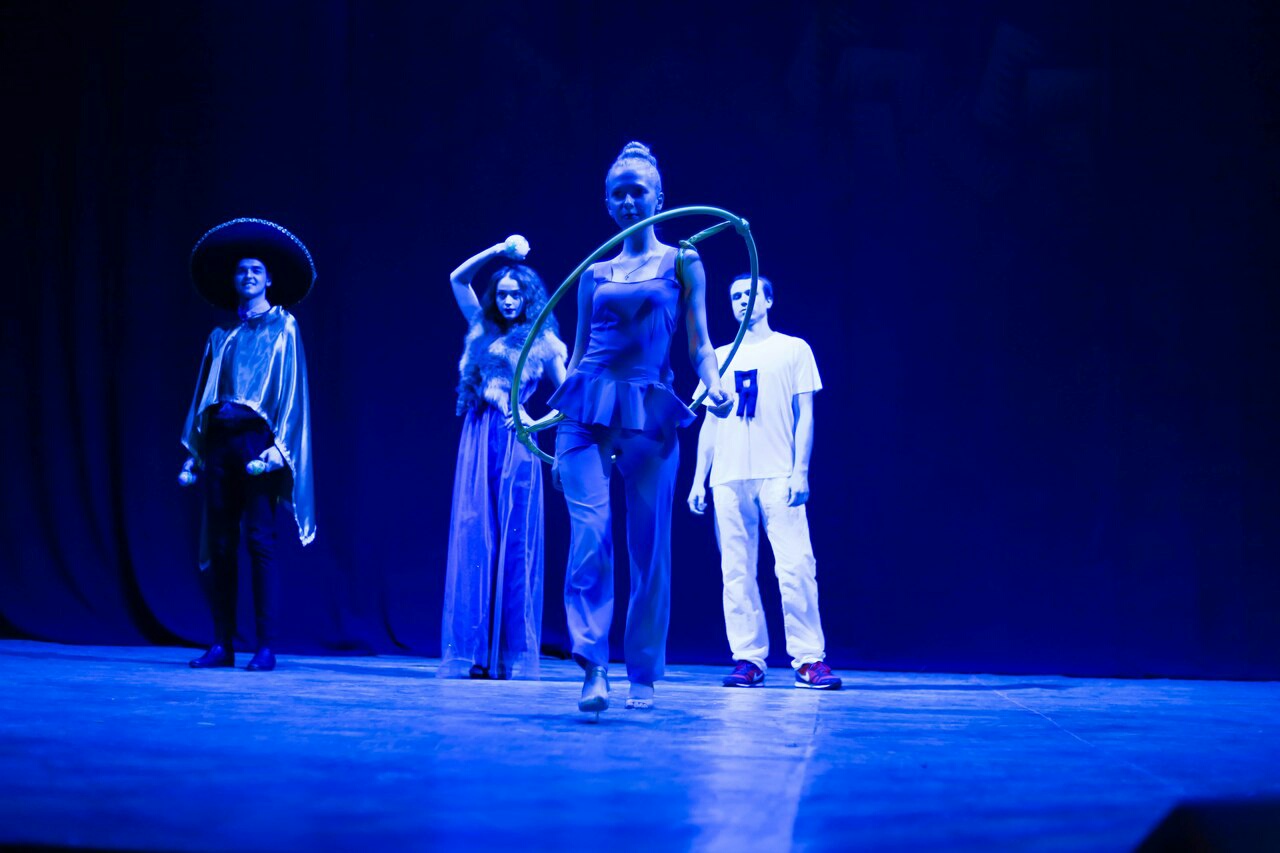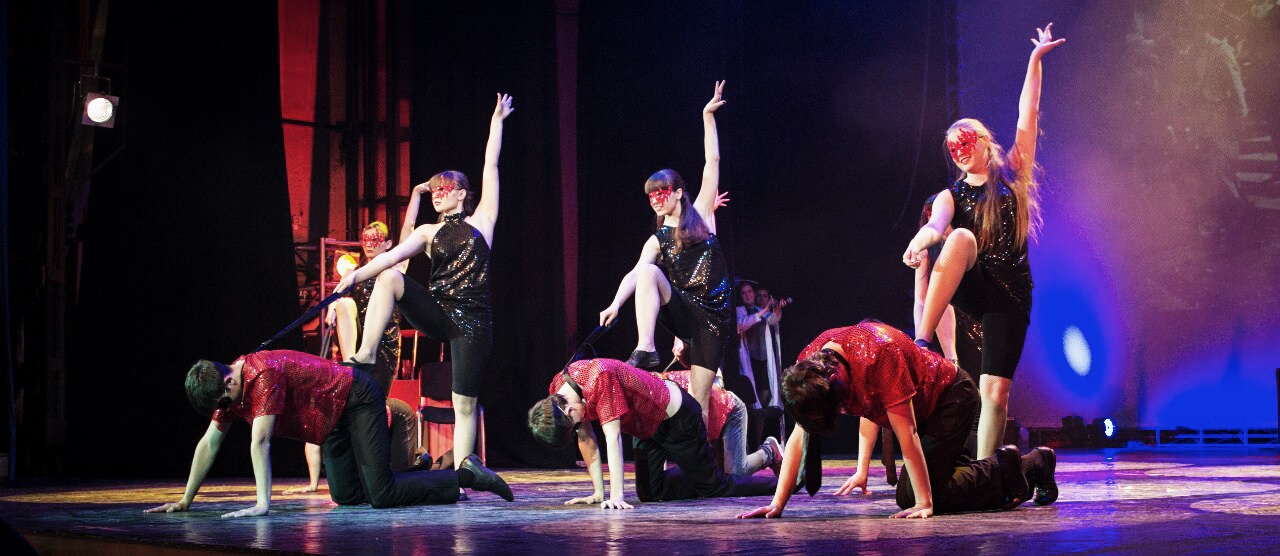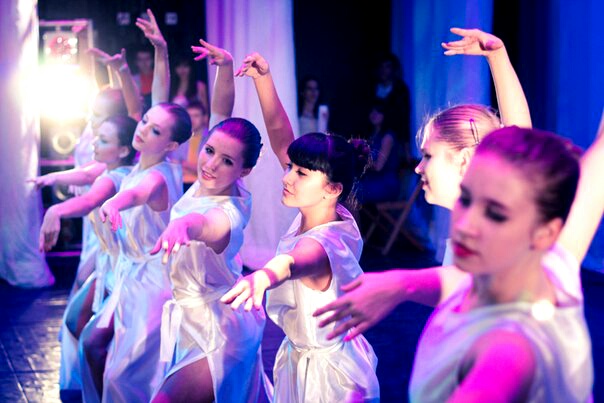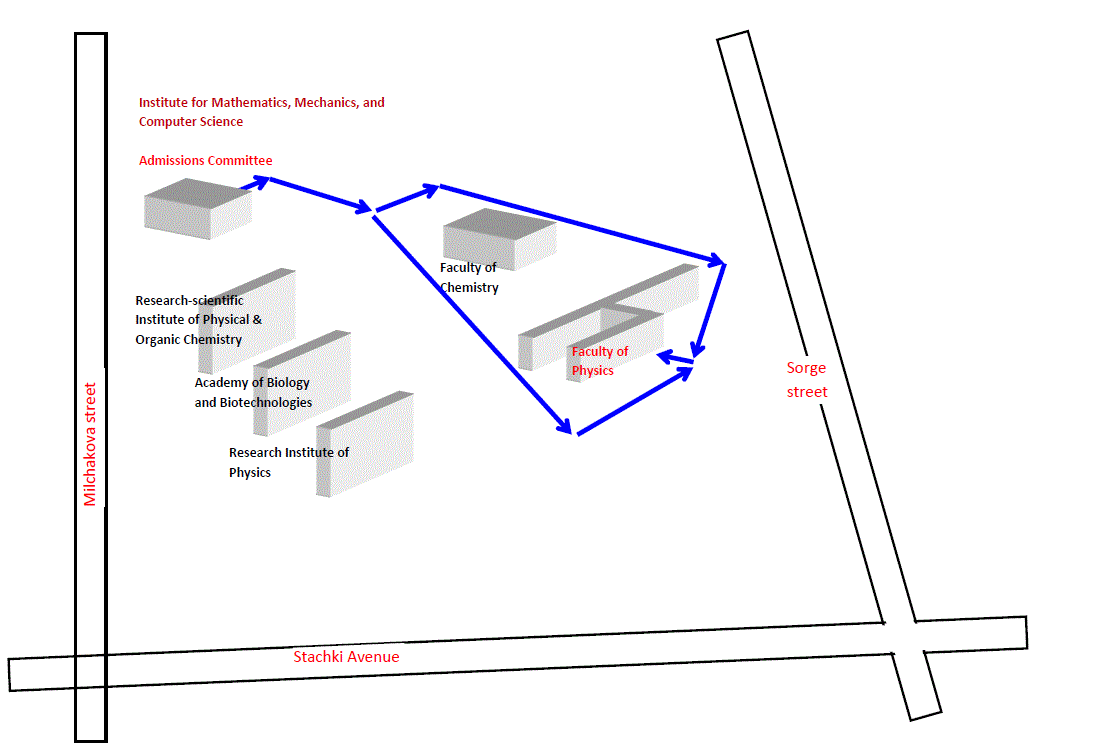|
Teaching students in the direction “Applied Physics” presupposes their obligatory participation in scientific work. For this there is a special discipline -
Scientific Research Activity of Students (SRAS), as well as a seminar on
SRAS, where students talk about their current scientific problems and achievements.
SRAS can be applied, search, fundamental, i.e. whichever suits you best and what the manager of your chosen laboratory is doing. The student makes the choice of the scientific direction independently during the 4th semester, having listened to introductory lectures, in which all teachers of the department talk about their research. Having chosen the topic of research, the student visits the laboratory of his choice, where he works (together with someone or himself) on the task set by his supervisor and discusses with him what is working out (or why it is not working).
Most often, the selected topic of research work does not change during training, and therefore, having started work in the 2nd year, the student accumulates results in order to defend the Course work in front of the team of teachers and students at the end of the 3rd year, and at the end of 4th course - Graduate qualification work.
If the results of SRAS are of interest, the supervisor may recommend to submit these results as a report to a conference - regional, all-Russian, international. A more traditional option is to participate with your report in the student conference at Science Week, which is held annually by the Faculty of Physics at the end of April.
Students' participation in scientific conferences is highly appreciated. The organizing committees of foreign conferences always provide financial support to scientific youth, hold schools where you can listen to the reports of the world's leading scientists. So, students have a real chance to present their achievements abroad. Since the language of communication at international conferences is English, it is important to start studying this language in depth from the very first year.
|


